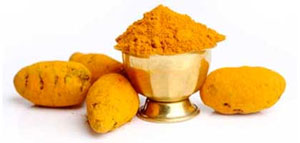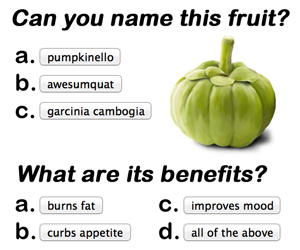
Turmeric's Anti-Inflammatory, Antioxidant Compounds Can Help Regulate Proteins & Genes Involved in Cancer
A number of natural plant compounds in turmeric, such as ar-turmerone and turmeric antioxidant protein (TAP), have anticarcinogenic and antitumor properties. However, the effects of the curcumin compounds that give the spice its golden color are the most well-studied. Curcuminoid pigments are found in the essential oil extracted from turmeric's rhizome. (vi.26-27)
Their cancer-fighting properties have inspired the interest of medical researchers from around the world. These include scientists and medical doctors at the world-famous MD Anderson Cancer Center in Texas, Johns Hopkins University, the University of Pennsylvania, and the Chinese University of Hong Kong. In fact, clinical studies in patients with cancer have been and continue to be conducted. (vi.26-28)
If you want to know more about the specifics of how curcumin and other compounds in turmeric fight cancer, this section is for you. It includes more scientifically complex terms and concepts from the many studies conducted on cancer and turmeric compounds.
What Are Cancer Pathways?
At the cellular level, naturally formed molecules in our bodies perform the functions we need to survive. Many of these molecules are types of proteins. They do their work in regulated, controlled sequences of events scientists refer to as signaling cascades or pathways. Some examples of these pathways include: (vi.29-31)
- Fuel oxidation: Converts the food we eat (or stored forms of it) into energy in order to function.
- Fuel storage and mobilization: Converts excess fuel from food into stored form (e.g., fat) to be mobilized and used as a source of energy when not eating.
- Detoxification: Neutralizes toxins we breathe in, eat, or are otherwise exposed to.
- Waste disposal: Gets rid of unnecessary substances the body generates from metabolizing food.
- Transport: Moves molecules into and between blood, tissue, and organs.
- Signaling: Communication between cells to coordinate and regulate cellular and organ functions.

Figure VI.1: Six Ways Cancer Cells Are Different Than Normal Cells
Inflammatory conditions create an environment in the body where these molecules can disrupt normal pathways. Unless brought back under control, levels of proteins and pathways become dysregulated and worsen into serious illness and disease (such as cancer). (vi.29-30, 32-33)
Scientists have identified specific signaling cascades that promote the development, growth, and metastasis of different cancers. They can involve hundreds of different genes and proteins. Regardless of the type of cancer, however, signaling cascades help create the common characteristics of cancer cells that make them different from normal cells: (vi.2, 29-30, 33-35)
How Can Turmeric Help?
Dysfunctional cancer cells are by nature hyperproliferative. This means they have poorly controlled cell growth, which is fueled by inflammatory proteins and free radicals. Chemotherapy drugs used to prevent or treat cancer target these proteins, lowering their levels and blocking their dysfunctional signaling pathways. The natural compounds in turmeric work the same way. (vi.2, 26, 29, 34, 36-38)
Multi-Targeting Cancer
Turmeric compounds help regulate many different types of proteins involved in cancer pathways, including: (vi.2, 14, 16, 26, 29, 34, 36-46)
- Transcription factors and cofactors
- Cytokines
- Proteins and enzymes that promote inflammation, angiogenesis, and metastasis
- Cell cycle proteins
- Growth factors and receptors
- Cell adhesion molecules (CAMs)
- Protein kinases
- Tumor suppressors and pro-apoptotic proteins
- Survival factors and inhibitors of apoptosis
Blocking Cancer Pathways
Turmeric and its compounds help block the signaling cascades that make cancer cells dysfunctional. Whether by oral ingestion or topically applied, some of the general cancer-fighting mechanisms of turmeric compounds include: (vi.2, 14, 16, 26, 29, 34, 36-46)
- Boosting and supporting proper immune system functioning. This includes promoting natural killer (NK) cells that target and get rid of tumor cells.
- Blocking the production of free radicals and the damage they cause to healthy cells.
- Generating free radicals that specifically target the mitochondria of cancer cells to help kill them or stop their growth.
- Inhibiting the activity of oncogenes and proteins that prevent cancer cell death.
- Promoting tumor suppressors. These proteins are crucial to regulating a cell's life cycle and help get rid of cells with DNA damage before they replicate and create tumors.
Join the 1000s of People Who Are Discovering the Benefits of Turmeric.

Healthceuticals® Turmeric Curcumin Complex
100% Certified
Organic ingredients
- Organic Turmeric Extract - standardized to 95% curcuminoids.
- Organic Whole Turmeric - provides full spectrum antioxidant, anti-inflammatory turmeric benefits, including turmerones and numerous vitamins, minerals, and phytonutrients
- Organic Black Pepper Extract - standardized to 95% piperine; dramatically enhances bioavailablity.
- Organic Phospholipids - markedly improve absorption.
- Organic Ginger - works synergistically with turmeric to provide more powerful benefits.
- Absolutely FREE of potentially harmful additives and fillers such as magnesium stearate.





